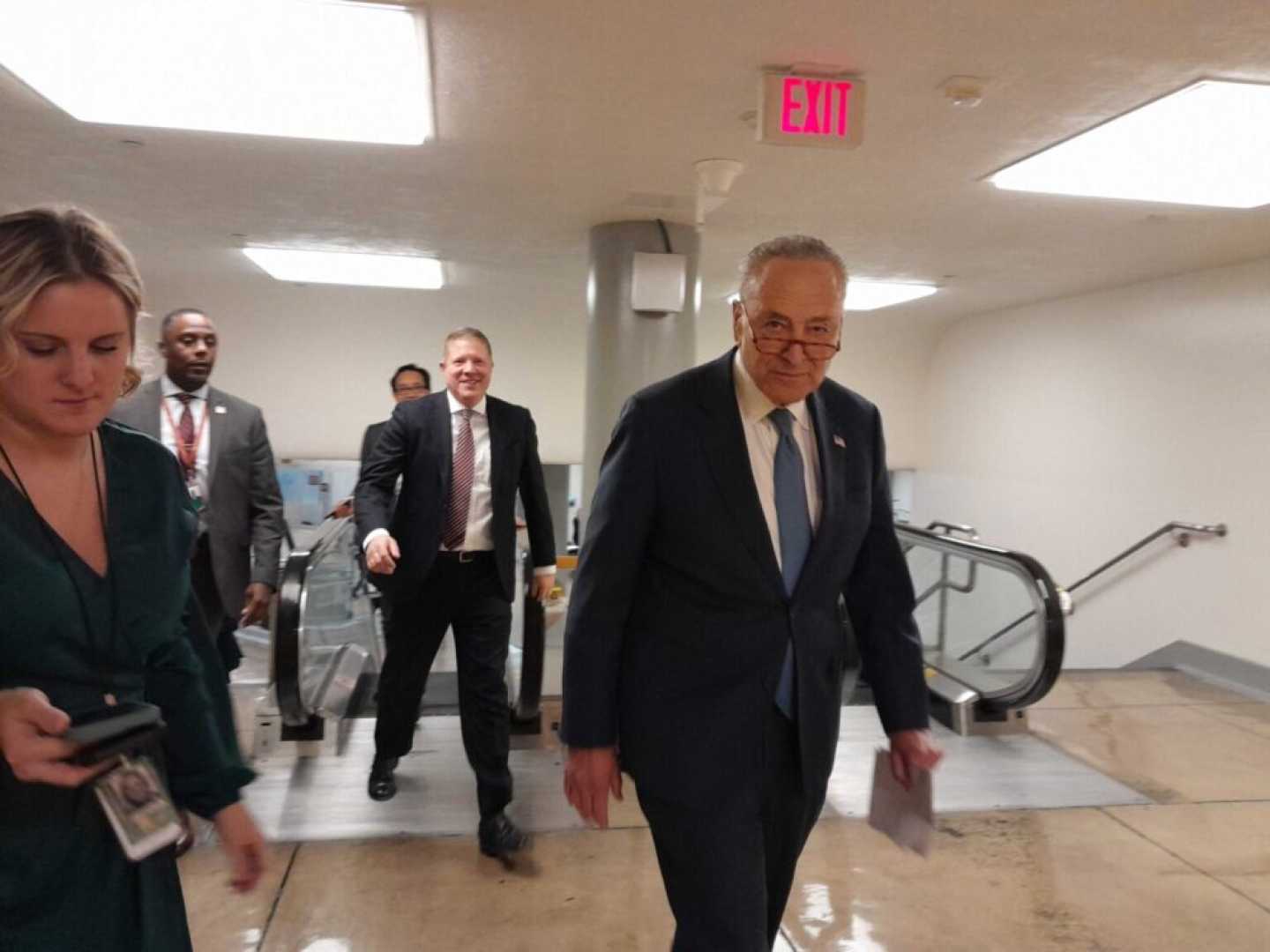Politics
Schumer Faces Pressure Amid Controversial Vote on GOP Spending Bill

WASHINGTON, D.C. — Senate Minority Leader Chuck Schumer is facing increasing backlash from within his own party after voting to support a Republican-backed spending bill aimed at averting a government shutdown. The vote, which took place on March 14, has led to calls for Schumer to step down as party leader, though he remains defiant in his position.
In a recent interview on NBC’s Meet the Press, Schumer stated, “I’m not stepping down,” and emphasized the necessity of the bill, arguing that a government shutdown would have posed a greater threat to the American public.
Democratic leaders and progressive lawmakers voiced strong disapproval of Schumer’s decision. Rep. Maxwell Frost of Florida expressed disappointment, asserting, “We need somebody who is able to meet the moment, and if he can’t do it, then maybe there’ll be somebody else who can.” Similarly, Rep. Pramila Jayapal of Washington echoed these sentiments, highlighting the lack of effective leadership in the current environment.
Critics cite a significant drop in Schumer’s favorability among Democrats, plummeting from 57% in late February to 39% in mid-March, according to a recent poll by the Economist/YouGov. Despite this, many congressional Democrats are keen to move past the fallout from the vote.
Former House Speaker Nancy Pelosi affirmed Schumer’s leadership, stating, “Of course, of course,” when asked if he should remain in his position. Minnesota Senator Tina Smith echoed this, focusing on broader priorities instead of leadership changes: “I am not interested in a conversation about the leadership of the Democratic caucus.”
Sour relations have raised concerns for Schumer’s continued leadership, but former aides and political analysts assert that challenges to leadership are common in such positions. Jim Kessler, a former aide to Schumer, remarked on the issue of making unpopular decisions as a leader, calling it typical of the role.
While discussing fears of a government shutdown, Schumer noted, “The [continuing resolution] was certainly bad … but a shutdown would be 15 or 20 times worse.” His concerns center on the potential impact of a shutdown, which he believes could lead to detrimental consequences for federal services.
Despite efforts to mitigate discontent, the rift among party members persists. The growing dissent may have implications in the upcoming Democratic primary elections, with figures like Michigan Democrat Mallory McMorrow publicly calling for a shift in Senate leadership.
As internal pressures mount, Schumer’s ability to navigate these challenges will play a crucial role in his political future and overall party dynamics.












